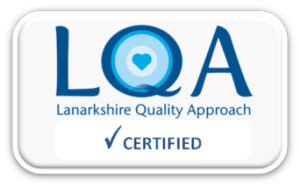Gastroenteritis (Diarrhoea and Vomiting)
Information for patients
NHS Lanarkshire Emergency Department
PIL.GASTRO.102608.L
What is gastroenteritis?
It is also known as diarrhoea and vomiting or a tummy bug. It is an infection of the gut and is very common.
What causes it?
Bugs such as viruses or bacteria cause gastroenteritis. Viruses are the most common cause in the UK. Sometimes it is caused by infected food (food poisoning).
What are the symptoms?
Gastroenteritis can cause some or all of the following, but the main symptoms are diarrhoea often with vomiting
- Diarrhoea – frequent (more than three a day) loose or watery stools
- Vomiting
- Abdominal pain – tummy ache, normally crampy.
- High temperature – more than 37.5oC
- Lethargy – less energy or more sleepy than usual
How long will it last?
It can last for up to two weeks, but may last for as little as one day.
What can I do at home?
Give your child lots to drink. If your child doesn’t want to drink, give the fluid on a spoon or with a syringe and put it in their mouth. Give small amounts of fluid little and often.
Special rehydration fluids (e.g. Dioralyte) are available from the chemist and most supermarkets. They are good at replacing lost water, sugar and salt. They can be used instead of or as well as their normal drinks.
What about food and milk?
Encourage your child to eat as normally as possible. In the past people used to suggest starving children with gastroenteritis, however this is no longer recommended. Don’t worry if your child does not feel like eating though, and offer them plenty to drink.
If your child is breast-fed you should continue to breast-feed – this is the best fluid for them and may even help recovery. You may need to feed them more often and they may also need additional fluids.
If your child drinks formula milk, you should continue to give them their normal full-strength feeds. The practice of further diluting feeds with water is no longer recommended and will not speed their recovery.
When should I see a doctor?
Nearly all children with Gastroenteritis can be successfully looked after at home. However it may sometimes be necessary to see your doctor.
Reasons for seeing your doctor
- If you think your child is dehydrated (dry). Things to look for that might suggest this: dry tongue and lips, less tears, sunken eyes, not passing urine, cold hands and feet, drowsiness and being irritable.
- If your child can’t keep any fluids down because of vomiting.
- If your child won’t drink at all.
- If your child has severe tummy ache.
- If your child has a lot of diarrhea (six or more large watery stools a day and/or vomiting more than three times per day)
- If your child has a high temperature
- If your child has blood in their diarrhoea or vomit.
- If the gastroenteritis is going on for a long time (vomiting more than one to two days, diarrhoea more than three to four days)
- If you are worried about your child in any way.
You are more likely to need to see your doctor if your child:
- Is less than six months old
- Was born prematurely and spent time in the special care baby unit
- Or has another medical condition.
What will the doctor do?
The doctor will ask some questions and examine your child. They will decide whether your child has gastroenteritis, assess how dehydrated (dry) they are and decide if any tests are necessary.
If your child is not dehydrated they will tell you to continue to give plenty of fluids to your child, so that they do not become dehydrated and advise you when you might need to see a doctor again.
If your child is dehydrated and not drinking enough, your child may need to be admitted for further treatment.
Will my child need a drip?
Sometimes it is necessary to give fluids in through a vein – a ‘drip’. Only a very small number of children ever need this, but if they become dehydrated and need admitted it may be necessary.
How can I prevent it?
Most children get gastroenteritis at one time or another. A few simple measures can reduce the chance of your child getting it, or passing it onto others when they do.
- Sterilizing bottles for all babies under one year.
- Hand-washing, especially after using the toilet or changing nappies.
- Cleaning the toilets they use regularly, including the flush handle.
- Not sharing towels with someone who has gastroenteritis.
- Keeping your child off nursery or school if they have diarrhoea and vomiting, and until 48 hours after they are free of symptoms.
Emergency Department Contact Information
- University Hospital Hairmyres: 01355 584716
- University Hospital Monklands: 01236 712191
- University Hospital Wishaw: 01698 366630
- NHS 24: 111

Publication date: September 2022
Review date: September 2024
Issue Number: 05
Reference: PIL.GASTRO.102608.L
22_09750
If you need this information in another language or format, please e-mail:





